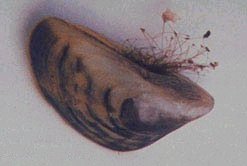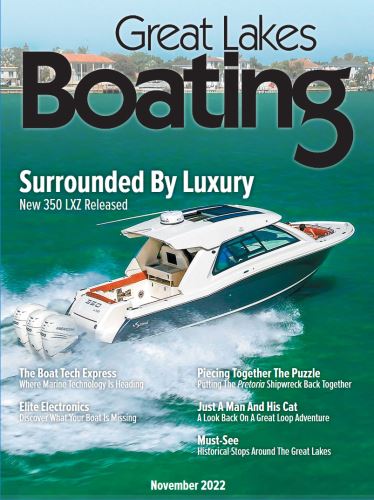By Lee Bergquist
An experimental plan to add bacteria to a Florence County lake to kill zebra mussels has been dropped because of local opposition, including worries from some county officials.
to add bacteria to a Florence County lake to kill zebra mussels has been dropped because of local opposition, including worries from some county officials.
The state Department of Natural Resources says that it is now looking for another lake to apply a biological pesticide — a tool that scientists say could be used to control the spread of zebra and quagga mussels, both invasive species.
It would have been the first time the bacteria was used in open water in Wisconsin.
The DNR and the U.S. Geological Survey decided to withdraw an application to use the bacteria on Keyes Lake after the state agriculture department received about 15 letters of opposition over the experiment. The Department of Agriculture, Trade and Consumer Protection is responsible for approving the use of pesticides for experimental research.
The letters included objections from the county's health officer, the forest and parks administrator and the county conservationist. Another letter included the signatures of 77 people — both Keyes Lake property owners and area residents who expressed concerns about the safety of using the bacteria.
The 195-acre Keyes Lake first became infested with zebra mussels in 2010, according to Chuck Henrichs, president of the local lake association.
"It's just getting worse," he said. "This was supposed to be an experiment to protect native species, and I guess it offended some people."
Bob Wakeman, aquatic invasive species coordinator for the DNR, said the agency didn't anticipate the negative reaction and said officials are trying to be sensitive to the concerns.
"We didn't want to stir up any problems," Wakeman said.
The bacteria, known by its trade name, Zequanox, is formulated from a strain of bacterium, Pseudomonas fluorescens CL145A, which is found in soil, plants and water. The active ingredients are chemicals inside the cells of the bacterium that disrupt the lining in the digestive systems of zebra mussels, killing them.
Theexperimenthad called for scientists with the U.S. Geological Survey to use the bacteria on zebra mussels that had attached themselves to native mussel beds. The bacteria would kill the invasive mussels, but not native species, according to James A. Luoma, a research scientist for the geological survey in La Crosse.
Similar experiments have been done in recent years in Illinois and Minnesota.
Zebra mussels were discovered in the Great Lakes in the mid-1980s and showed up in inland Wisconsin lakes in 1994. Zebra mussels have been found in 163 lakes and rivers in the state. Quagga mussels are in the Great Lakes, but not in inland waters.
Henrichs, of the lake association, said he didn't believe opposition to the experiment was widespread, but he thought some residents were taken off-guard by the plans.
"There could have been better organization," Henrichs said.
A public meeting was held last month, and a public notice was published in a local newspaper, Wakeman said. Henrichs also said people associated with the experiment talked to a few residents two or three months ago.
Annette Seibold, public health officer for the county, wrote to the agriculture department that, "I am uncomfortable that an open-water lake in my community used by children and adults for a variety of recreational purposes is being proposed as a test site." Seibold lives on the lake.
County conservationist Margie Yadro expressed concerns about introducing bacteria into the food chain and noted that Zequanox includes a product warning saying it may be harmful if swallowed by humans or domestic animals.
The manufacturer, Marrone Bio Innovations, said the product poses no health problems to humans and animals if used properly.
Wakeman said the agency and the geological survey are looking for another suitable lake, possibly this year, that meets the criteria of having a relatively new infestation of zebra mussels, existing native mussels beds and the correct depth of water to conduct the experiment.
http://www.jsonline.com/news/wisconsin/dnr-drops-plan-to-use-bacteria-to-kill-zebra-mussels-on-northern-lake-b99302260z1-265378541.html

